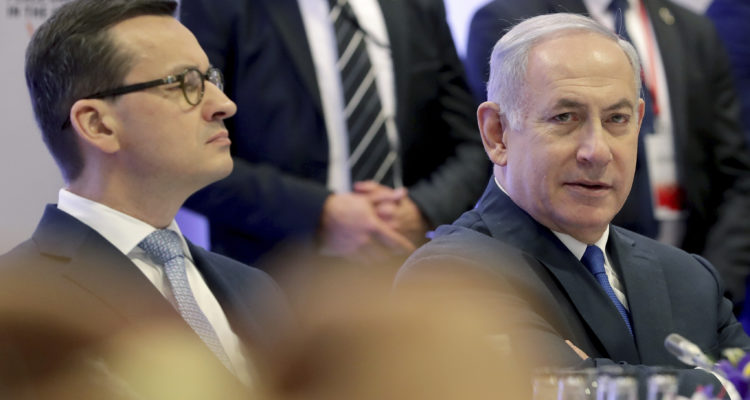There is a tendency to either idealize or demonize Polish-Jewish relations. However, reality is rarely black and white.
By Daniel Krygier, World Israel News
The latest Warsaw-Jerusalem crisis reveals that the complex Polish-Jewish relations are still too often seen through a prism of black and white stereotypes.
While history must not be whitewashed and misrepresented, future Polish-Israeli relations would benefit from mutual respect. Prime Minister Benjamin Netanyahu correctly stated that individual Poles did persecute Jews during the Holocaust, while the new acting foreign minister Yisrael Katz crossed the line by wrongly demonizing all Poles as a nation of anti-Semites.
Few places in the world are as intimately connected with Jewish history as Poland. Jews and Poles lived side by side for around 1000 years, both in times of harmony and tension.
Under the benevolent reign of king Casimir the Great, Poland became a heaven for a large number of persecuted Jews from all over Europe. In return, Jews contributed disproportionately to Poland’s economic, cultural and scientific development.
By the end of the 18th century, the majority of world Jewry resided in the former Polish-Lithuanian Commonwealth. As late as in 1939, one third of Warsaw’s population was Jewish. At the time, Poland’s capital was the second largest Jewish city after New York.
A mixed reality
There is a tendency to either idealize or demonize Polish-Jewish relations. However, reality is rarely black and white. Anti-Semitism and Philo-Semitism has existed side by side in Poland for centuries.
Like Israel, Poland was frequently threatened by large and hostile neighbors. For centuries, Poland ceased to exist as an independent state and was divided between the Germans, the Austrians and Russia. The Catholic Church was sadly both a source of anti-Semitism as well as a symbol of Polish identity and independence against Protestant Germany and Christian Orthodox Russia.
While many Poles did cooperate with the Nazis against their Jewish neighbors, others risked their lives to save their Jewish neighbors. Unlike Hungary or the Baltic states where local regimes cooperated with Nazi-Germany, the Polish exile government in London fought against the Nazis.
While the Nazis marked Jews for extermination, Nazis also viewed Poles as sub-humans. In addition to six million murdered Jews during the Holocaust, three million ethnic Poles were killed during the Second World War.
Two proud nations
At the center of the Polish-Jewish controversy are two nations that proudly fought for their freedom while facing persecution and bigotry.
Before the reestablishment of Israel, Polish-Jewish relations were not symmetric since Jews did not have a homeland of their own. While many individual Poles did persecute Jews, the Poles as a nation were more victimized than most European nations.
Many Jews, but also non-Jews, are rightly upset over the fact that the current conservative Polish government seeks to downplay Polish involvement in the Holocaust. Polish nationalists’ attempt to equate anti-Polonism with anti-Semitism are equally disturbing and tasteless.
At the same time, given Poland’s tragic history, it is understandable that many Poles, to a large degree, view themselves as victims. Unlike the Germans who voted for Hitler and the Austrians who welcomed the pro-Nazi Anschluss in 1938, both Nazi Germany and Soviet Russia brutalized Poland.
Israel and the Jewish people have a responsibility to combat Holocaust denial and history revisionism. At the same time, Israel and Poland are today modern democracies that benefit from strong bilateral relations and cooperation. The key to future thriving relations between Warsaw and Jerusalem is to balance honesty with mutual respect that recognizes the pain of the other side.





